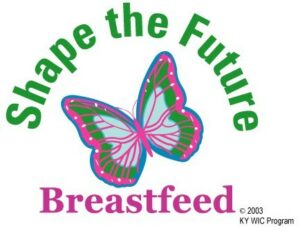The Many Benefits of Breastfeeding
Breastfeeding is the most natural way to feed baby. The mother’s body prepares for the task as early as 16 weeks gestation. Research has shown there are many benefits to breastfeeding, including but not limited to:

For Baby
- Protection against chronic disease
- Reduced incidence of type 2 diabetes
- Reduced risk of childhood cancers
- Reduced risk of childhood obesity
- Exclusive breastfeeding during the first 6 months reduces the risk of SIDS
- Lower overall incidences of earaches, tummy trouble, and respiratory illnesses
- Reduced risk of childhood cavities
For Mom
- Increases weight loss in the first 6 weeks postpartum
- Reduced risk of osteoporosis
- Reduced risk of breast cancer, ovarian cancer, cervical cancer, and thyroid cancer
- Protection against rheumatoid arthritis, diabetes, cardiac disease, high cholesterol, and high blood pressure
Breast milk is also the perfect food because it is unique to the baby. The relationship between mother and baby while breastfeeding is referred to as the Tree of Life (illustration below). The saliva in baby’s mouth is transmitted to the mother’s system through the areola, where it is “read” by mother’s body and the breastmilk is adjusted to the baby’s needs. If mom’s body senses that the baby may be getting sick, her breast milk is increased with more antibacterial and antiviral defenses for the baby. How cool is that?
Important Points to Remember
If you are breastfeeding, or plan to breastfeed, here are some things to keep in mind:
- Milk production may be low in the first few days, and this is normal; baby is getting necessary nutrients at this time
- On day one, your baby’s stomach is only the size of a marble!
- On day three, it is the size of a ping pong ball
- On day 10, the stomach has grown to the size of an extra-large chicken egg
- Feed baby often, when the baby cues (this could be sucking on fist, rooting, general restlessness); this could be up to 12 times daily
- Avoid the use of bottles and pacifiers until breastfeeding is well established (3-6 weeks)
- Sleep in close proximity to your baby
- Alternate breasts with each feeding
- Allow baby to stop feeding, no timed feeds; offer both breasts at each feeding to allow total satiation of baby’s appetite; baby will stop nursing when they are full
- By the first week postpartum, baby should have at least 5 wet diapers and 4 stools daily
Even though breastfeeding is natural, it’s not always easy. If you are struggling with breastfeeding, you’re not alone. Call the health department to make an appointment with a nurse today. For more information on certified breastfeeding professionals in your area, click this link: https://portal.ilca.org/i4a/memberDirectory/index.cfm?directory_id=19&pageID=4356 The following link is the Kentucky Department of Public Health website which has many helpful pages: https://chfs.ky.gov/agencies/dph/dmch/nsb/Pages/breastfeeding.aspx Remember, love is the most important thing you can give your baby!

